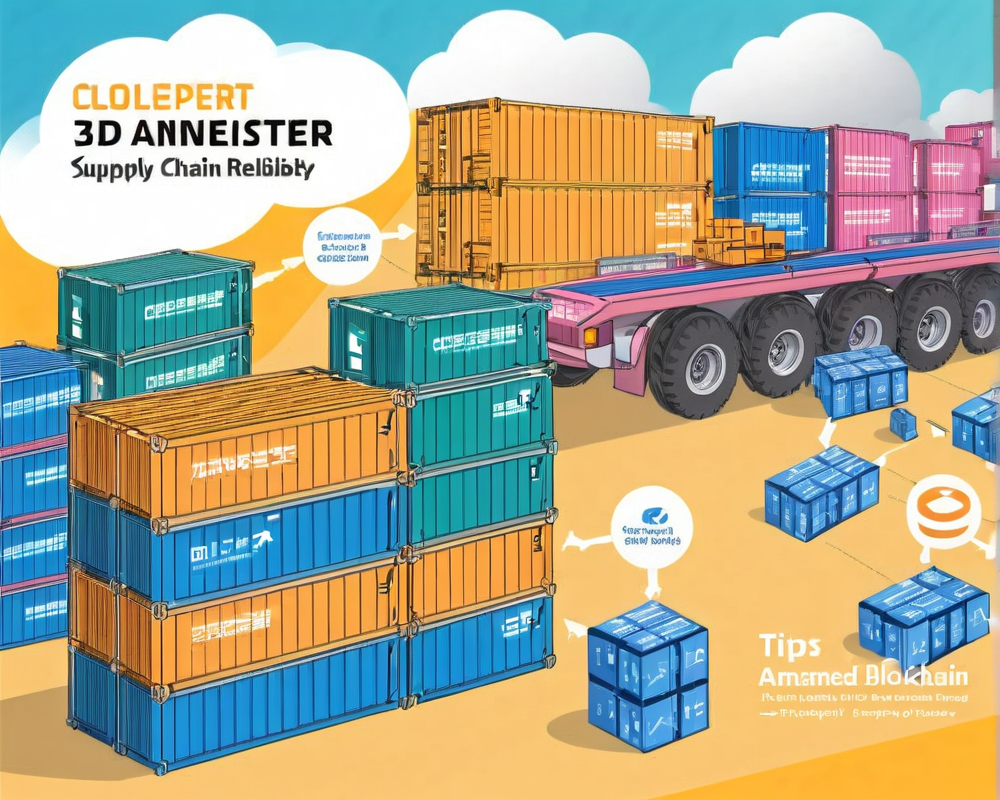The Rising Importance of Supply Chain Reliability
As product-based businesses scramble to keep their shelves stocked, the reliability and efficiency of supply chains emerge as vital concerns. Recently, industries faced significant hurdles in sourcing materials and ensuring product availability. In this chaotic environment, blockchain technology shines as a potential solution for companies searching for streamlined, safe, and easy-to-manage options.
Understanding Blockchain’s Value
Before diving into the blockchain bandwagon, it’s essential to grasp its unique strengths. Sure, it’s trendy, but understanding how blockchain can revolutionize the storage and sharing of information is crucial for unlocking its full potential. As Oleksandr Lutskevych from CEX.IO puts it, grasping blockchain’s core value is key to making an informed decision.
Start with the Three P’s of Logistics
Megan Nyvold from BingX suggests starting with the “three P’s” of logistics—predictive, proactive, and prescriptive. By determining which areas of your business can be effectively disrupted by blockchain, you’ll be a step closer to streamlined processes.
- Predictive: Anticipating needs and disruptions.
- Proactive: Taking action before issues arise.
- Prescriptive: Offering recommendations based on data.
Framing Your Use Case for Blockchain
Ilias Salvatore from Flooz XYZ emphasizes the importance of a solid use case. Ask yourself: Is your problem solvable without blockchain? Will non-fungible tokens help in fractionalizing commodity investments, or do you need on-chain settlements? And remember, don’t reinvent the wheel—partner with seasoned providers to leverage their expertise.
Reviewing Industry Standards
Before getting tangled up in blockchain solutions, Jae Yang of Tacen reminds us to review your industry’s existing solutions. Ensure that adopting blockchain actually offers improvements rather than complicating your operations. Nobody wants to be the business that replaces a solid process with an overly complex system that doesn’t scale.
Addressing Common Disruptions
Stephanie So from Geeq urges businesses to remember: blockchain isn’t a cure-all. Assess whether your supply chain issues can be tackled with tried-and-true methods before looking to blockchain. If your supply chain is unstable, perhaps it’s time to explore how blockchain can fit into those fragile spots, but be sure to shop around and explore options.
Choosing the Right Blockchain Solution
Theo Sastre-Garau from NFTevening highlights the necessity of selecting the right blockchain type based on your unique needs—public, private, permissioned, permissionless, or a hybrid. Collaborating closely with supply chain partners is pivotal for a successful rollout. Trust isn’t just for relationships; it’s essential in business too.
Optimize Before Committing to Blockchain
Don’t put the cart before the horse! Zain Jaffer from Zain Ventures recommends optimizing your processes before integrating blockchain. Once you adopt blockchain for tracking, retracting can be daunting. Ensure that the traditional reports necessary for product movement can still be generated by your new system.
Identifying Pain Points
Blockchain can significantly enhance transparency, traceability, and data security in logistics. Companies should look to identify specific pain points in their supply chain that could benefit from blockchain. This targeted approach can help build a robust case for blockchain implementation, as Tomer Warschauer Nuni from Kryptomon suggests.
Tailoring the Blockchain Network
Vinita Rathi from Systango points out the need for a tailored blockchain network to meet specific business needs. Each architecture and consensus mechanism should align with your operational goals—a custom-fit approach could mean the difference between success and a catastrophic flop!
Simplicity is Key
For traditional companies, Wolfgang Rückerl from ENT Technologies AG advises adopting blockchain solutions that keep complexity at bay. Simplicity should rule the day; too many bells and whistles can create more headaches than solutions. Sometimes, a white-label service might just be the golden ticket.
Understanding Investments Needed
Finally, Sheraz Ahmed of STORM Partners emphasizes understanding the full scope of investments required for blockchain implementation. This is no simple task; it calls for a commitment to infrastructure, resources, and training. While the upfront cost may seem daunting, the long-term benefits of efficiency and transparency can make it worthwhile.




